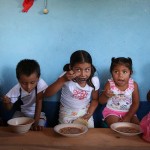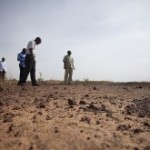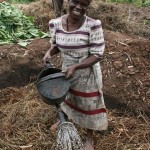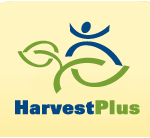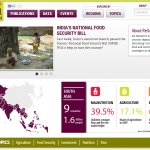Investing in preschool nutrition has long-term positive health and economic impacts, and failing to invest can do long-term damage. Since 2002, IFPRI’s work on this topic has included studies in many countries, including Guatemala and Zimbabwe.
The Program for Biosafety Systems
IFPRI, through its USAID-funded Program for Biosafety Systems (PBS) supports the development and implementation of science-based, functional biosafety systems that ultimately expand producer choice, inspire consumer confidence, facilitate trade, and promote agricultural research and development.
The Malawi Strategy Support Program
Malawi ranks among the world’s most densely populated and least-developed countries. Because agriculture is the main source of income for most of the population, the development of targeted policies that spur growth in the sector, particularly in smallholder-based agriculture, is critical to meeting the country’s food security and poverty reduction goals.
HarvestPlus
Since 2004, HarvestPlus has been working to combat micronutrient malnutrition, also known as “hidden hunger,” which afflicts billions of people worldwide.
Effects of Environmental Policy on Household Income in North China
Environmental policies have wide-ranging and far reaching effects. For example, by providing participating farmers an annual subsidy for retiring their farmland and planting saplings, the Sandstorm Source Control Program (implemented in Beijing and Tianjin from 1998 to 2003) contributed to higher household incomes.
Taking Action for the World’s Poor and Hungry People: A 2020 Conference
With the 2015 deadline for the United Nations’ Millennium Development Goals looming, IFPRI facilitated an international policy consultation to identify actions needed to ensure the world’s poorest and hungry people would not be left behind.
West African Agriculture and Climate Change
Maize, millet, rice, and sorghum are the major cereal crops in West Africa, yet yields from these crops are very low compared to the world average and even other regions within Africa. A changing climate will challenge production systems already under pressure to increase output to feed a growing population.
Increasing Farmers’ Income in Nigeria (FADAMA)
In 2005, the Nigerian government launched Fadama II, a World Bank-funded project intended to increase the income of farmers, fishers, and other poor people in the low-lying floodplains—known as Fadama in the Hausa language—where poverty is concentrated.
Improving Agricultural Data and Policy Analysis in Nigeria
MOTIVATION Agriculture is the single largest contributor to the well being of the rural poor in Nigeria, sustaining approximately 86 percent of rural households in the country. Improved agricultural development and growth can provide a pathway out of poverty. In an effort to assist Nigeria’s Federal Ministry of Agriculture to meet CAADP goals and commitments, >> Read more
Providing Food Policy Information for African Policymakers: The Regional Strategic Analysis and Knowledge Support System (RESAKSS)
MOTIVATION The efforts under CAADP to promote evidence-based policy planning and implementation require a mechanism that incorporates peer review, benchmarking, and learning, as well as mutual accountability. IFPRI, along with the International Livestock Research Institute (ILRI), the International Institute of Tropical Agriculture (IITA), and the International Water Management Institute (IWMI), and in partnership with the >> Read more
